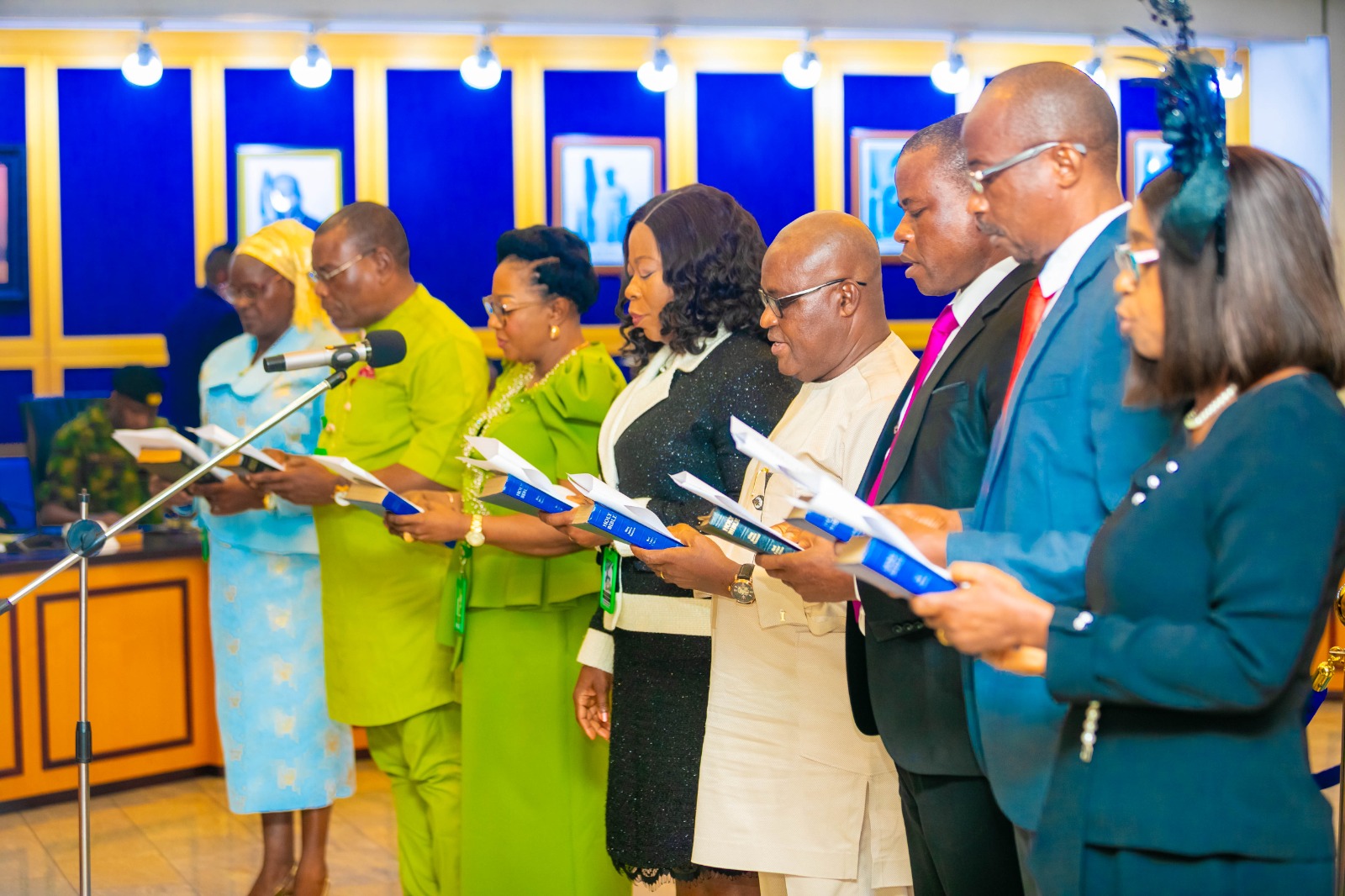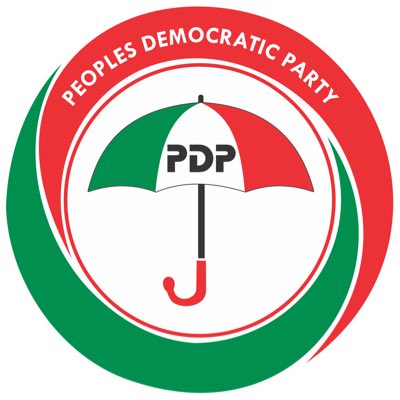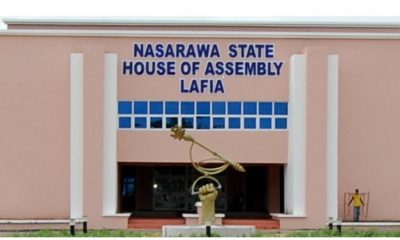News
Relatives Of Deceased Pension Contributors Get N82bn –PenCom

The National Pension Commission has disclosed that about N82.22billion was paid in death benefits to 10,451 relatives (next of kin) of deceased pension contributors in 2024.
This is according to the latest Pension Industry Information Dashboard.
The figure represents a 40.3 per cent increase from the N58.6billion paid in 2023, affirming the growing financial impact of the pension scheme in providing support for families of deceased contributors.
An analysis of the data shows that death benefits have consistently increased over the years.
In 2020, a total of N31.09bn was paid to 6,731 next of kin, while N42.83billion was disbursed in 2021 to 8,327 beneficiaries.
The figure rose to N59.6billion in 2022, covering 10,631 cases, before reaching N58.6billion in 2023 for 9,836 next of kin.
The latest increase in 2024 follows a rising trend in benefit payments, which suggests higher compliance with the Contributory Pension Scheme and growing awareness among contributors about ensuring their next of kin receive entitlements upon their demise.
In addition to death benefits, total pension payouts across various categories remained substantial in 2024.
The monthly programmed withdrawal scheme, which allows retirees to access funds at regular intervals saw a cumulative N114.5billion disbursed as of Q3 2024.
The retiree life annuity system, which ensures a steady income for pensioners, recorded N689.4billion in premium payments.
Meanwhile, lump-sum payments, which grant retirees a portion of their savings upon retirement, stood at N83.73billion, covering 19,481 retirees in 2024.
The number of retirees opting for lump sums has reduced compared to previous years, indicating a preference for structured withdrawals in line with long-term financial planning.
The pension industry continues to grow, with cumulative pension contributions reaching
Public sector contributions accounted for N5.71trillon (52.1 per cent), while private sector contributions stood at N5.25trillion (47.9 per cent).
The industry also recorded a steady increase in Retirement Savings Account registrations, with 10.54million registered accounts as of Q3 2024.
The year saw 118,339 new RSA registrations, reflecting the growing adoption of the scheme and sustained efforts at pension inclusion.
The Micro Pension Plan, which was introduced in 2019 to cater to workers in the informal sector, also saw increased participation.
By Q3 2024, the total number of micro pension registrations stood at 164,031, with savings reaching N967.19million, an increase of N878.07million from 2020.
The figures highlight the growing recognition of pension security among informal sector workers, despite economic challenges.
The report also shows that payments under accrued rights, which cover pension entitlements for Federal Government employees who were part of the old pension scheme before the CPS was introduced in 2004, remained steady.
A total of N61.71billion was disbursed to 14,873 beneficiaries in 2024, ensuring continued financial support for retirees transitioning to the contributory scheme.
Meanwhile, the RSA transfer system, which allows contributors to switch pension fund administrators once a year, has recorded increased activity.
As at Q3 2024, a total of N1.26trillon had been transferred since inception, with 67,146 RSA transfers recorded in 2024.
The figures suggest greater awareness and competition among pension administrators, as contributors seek better returns and service delivery.
Despite steady growth in pension assets and contributions, economic conditions and inflationary pressures continue to influence the pension industry.
News
Ibas Inaugurates RSIEC, Service Commissions, Healthcare Board In Rivers …Charges Appointees To Embrace Principles Of Service

The Administrator of Rivers State, Vice Admiral (Rtd) Ibok-Ete Ibas, has charged newly appointed Board members to uphold the highest standards of discipline, competence, integrity, and unwavering dedication in their service to the State.
He emphasized that such commitment is critical to stabilizing governance, restoring democratic institutions, and advancing the principles of good governance in the State.
This was contained in a statement by the Administrator’s Senior Special Adviser on Media, Hector Igbikiowubo on Monday.
Ibas issued the charge on Monday while inaugurating the reconstituted Rivers State Independent Electoral Commission (RSIEC), Rivers State Civil Service Commission, Rivers State Local Government Service Commission, and the Rivers State Primary Health Care Management Board at Government House, Port Harcourt.
The Administrator urged the new appointees to embrace their roles with diligence, patriotism, and a commitment to transforming Rivers State through excellent service.
Addressing the Chairman and members of RSIEC, Ibas underscored their pivotal role in ensuring credible local government elections that reflect the will of the people.
“Your task is clear but demanding: to conduct free, fair, transparent, and credible elections at the grassroots level. You must resist bias, favoritism, and external interference while restoring public confidence in the electoral process,” he stated.
“The independence of your actions is crucial to sustaining peace, stability, and grassroots governance. I urge you to act with fairness, impartiality, and professionalism—even in the face of difficult choices,” Ibas added.
The Sole Administrator also charged the Rivers State Civil Service Commission on the need to eliminate mediocrity and foster a culture of excellence through merit-based recruitment, training, and promotions.
“The civil service must transition from favoritism to competence, integrity, and accountability. Your commission will lead reforms, including digital transformation and standardized practices across ministries, departments, and agencies,” he said.
He disclosed that extensive training programmes are underway, with a committee set up to overhaul the public service framework for greater efficiency.
Meanwhile, Ibas urged the Rivers State Local Government Service Commission to ensure professionalism and discipline in local government administration.
“As the closest tier of government to the people, you must drive reforms that insulate the system from politics and mediocrity. Your mandate includes merit-based recruitment, training, and enforcing standards for effective service delivery,” he stated.
In the same vein, the Administrator charged the Rivers State Primary Health Care Management Board with revitalizing healthcare delivery across the state’s 23 local government areas.
“Primary healthcare is the foundation of a sustainable health system. Your board must ensure facilities are adequately staffed, equipped, and operational focusing on maternal health, immunization, malaria control, and community health services,” he said.
He emphasized data-driven operations, incentives for rural health workers, and restoring the referral system to improve healthcare access.
He also assured the Board of sustained government support, including funding, for the effective discharge of their mandates but warned that board members would be held accountable for their performance.
The newly inaugurated members include: RSIEC: Dr. Michael Ekpai Odey (Chairman) with Prof. Arthur Nwafor, Prof. Joyce Akaninwor, and others as members.
Civil Service Commission: Dr. Livinus Bariki (Chairman), Amb. Lot Egopija, Mrs. Maeve Bestman, and others.
Local Govt. Service Commission: Mr. Isreal Amadi (Chairman), Rear Adm. Emmanuel Ofik (Rtd), Dr. Tonye Pepple, and others.
Primary Health Care Board: Dr. Dawari George (Chairman), Dr. Chituru Adiele (Executive Director), Prof. Kaladada Korubo, and representatives from key ministries.
News
Rivers PDP Debunks Sale Of LGA Election Forms

The Publicity Secretary of the Peoples Democratic Party (PDP) in Rivers State, Dr. Kenneth Yowika, has debunked claims that the party has commenced sale of forms for chairmanship and councillorship elections across the 23 local government areas of the state.
Yowika made the rebuttal in a statement made available to newsmen on Wednesday, describing the publication on the social media as baseless and untrue.
He urged members of the PDP to disregard the claim, saying that official communication regarding the sale of forms would be disclosed through the appropriate channels.
“With reference to information trending on social media, it has been falsely claimed that the sale of forms for Chairmanship and Councillorship elections in the 23 Local Government Areas (LGAs) of Rivers State will begin soon.
“However, the party has firmly denied these rumours, stating that they are baseless and untrue.
“The party has its own established methods of reaching out to its numerous supporters.
“The People’s Democratic Party, a law-abiding organisation, will patiently await the release of guidelines from the recently inaugurated Rivers State Independent Electoral Commission (RSIEC) before considering any sale of election forms.
“The PDP is urging its members to remain calm as official communication regarding the sale of forms will be disclosed through appropriate channels,” the statement read.
Enoch Epelle
News
South-South contributes N34trn to Nigeria’s economy in 2024 – Institute
Prof. Pius Olanrewaju, President of the Chartered Institute of Bankers of Nigeria (CIBN), has stated that the South-South region contributes N34 trillion to country’s economy in 2024.
He made the remark at the South-South Zonal Banking and Finance Conference in Calabar, yesterday.
He spoke on the theme, ‘’Building An Inclusive South-South: Economic Diversification as a Catalyst For Development.’’
Olanrewaju, who quoted the data from the Cable Data Index, said the feat was more than 21 per cent of Nigeria’s real Gross Domestic Product (GDP).
The president described the growth as ‘’ impressive,’’ saying that it was not driven by oil alone but significant expansions in trade, services, and the creative industries.
According to him, to fully harness this potential, coordinated financial, technological, and policy support is essential.
“As we work to reposition the South-South for broad-based prosperity, the financial system must play a central role, not merely as a source of capital, but as a catalyst for innovation, ideas incubation, and inclusive economic growth.
“This conference, therefore, provides a strategic opportunity for stakeholders to reimagine the South-South economy, not merely as a resource belt, but as a region of diverse capabilities and resilient enterprises.”
Olanrewaju added that Nigeria must move beyond old models and chart a new course for the development of the South-South region, where financial institutions and stakeholder collaborate to diversify the economy for shared prosperity.
He, however, commended Gov. Bassey Otu for his pledge of land for CIBN Secretariat in Cross River and being the first sitting governor to willingly undergo and complete the Chartered Bankers Programme.
On his part, Gov. Otu said that the conference discussion on the economic diversification in South-South region was timely against the backdrop of global trade and economic volatility that was affecting the nation’s economy.
Represented by his deputy, Mr Peter Odey, Otu said the South-South region must now act with urgency to diversify its economy while leveraging its shared natural endowment in agriculture and extractive resources.
“This conference must help develop tailored financial solutions that reflect the unique strengths and realities of states like Cross River in the south-south.
“Diversification should be evidence-based and must be backed not just by financial advice but project focused financing and real investment support,” he noted.
He said that Cross River had taken the bold step to invest in its agricultural sector by launching an Agro processing hub.
Otu further said that the state had invested in aviation by acquiring more aircrafts for Cally Air, construction of the Bakassi Deep Seaport and injecting N18 billion in its tourism sector.
Similarly, Mr Tolefe Jibunoh, Cross River Branch Controller of the Central Bank of Nigeria (CBN) said that the region was blessed with natural resources, cultural diversities and immense human potentials.
Jibunoh, who was represented by Mr Segun Shittu, Head, Currency Control Office, CBN, Calabar, noted that strategic diversification could unlock unprecedented opportunities for growth in the region.
He added that the CBN remained steadfast to maintain monetary possibilities and promote a sound financial system as a catalyst for sustainable economic development for the benefit of all.
-

 Business1 day ago
Business1 day agoIndustry Leaders Defend Local Content, … Rally Behind NCDMB
-

 Politics1 day ago
Politics1 day agoNasarawa Speaker Advocates Conducive Executive/Legislature Relations
-
Niger Delta1 day ago
Delta Leverages On Extensive River Networks To Drive Blue Economy
-
News1 day ago
FG Renames University of Maiduguri After Buhari …As Tinubu Pours Encomiums On Late President
-
News1 day ago
PCRC Dismisses Claims Of Police Strike As Fake, Mischievous
-

 News1 day ago
News1 day agoRivers PDP Debunks Sale Of LGA Election Forms
-
Niger Delta1 day ago
Bishop Mocks Fake Prophecy Seekers … As Priests Relive Challenges At Ordination Ceremony
-
Rivers1 day ago
Macobarb CEO Cries Out, Says No Indigenous Contractor Can Win Case Against NLNG Or Oil Majors in Nigerian Courts …As Justice Nwogu Throws Out Macobarb’s N5.74bn Claim

